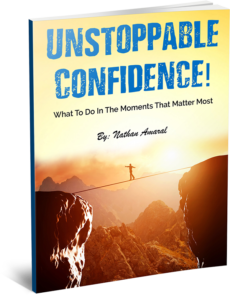PODCAST
Investing In Other Countries With Nathan Amaral
Episode 513: Investing In Other Countries With Nathan Amaral

For today’s guest, investing in other countries wasn’t always on the table. But after following his heart and moving to Uganda with his now-wife, he found a golden opportunity in real estate. In this episode, Nathan Amaral shares the romantic story of how he got his start in international real estate investing. He joins host Mitch Stephen to inspire other investors to do the same and share tips on what to watch out for. Plus, Nathan offers advice on overcoming and ridding yourself of limiting beliefs with insights from his book, Unstoppable Confidence For Real Estate Investors.
—
Watch the episode here
I’m here with Nathan Amaral and we are going to be talking about, among other things, investing overseas. This guy invested in Portugal, Uganda and the United States. I have 1,000 questions running through my mind because this is an original topic. I don’t know anyone investing in Portugal, Uganda, and the United States as a general plan. How are you doing, Nathan?
I’m doing great. Thanks for having me here, Mitch.
We already know he’s crazy because this guy is like, “Get out.” I do want to pay homage to my sponsor, LiveComm.com. If you want to know how I have managed to have the last 200 houses only be on the market for four days on average, then check out LiveComm.com. See how I tied it to a social media site. I pay no advertising bills to speak of, and I paid no signs in my arms. I use no signs anymore. It’s a signless sales for real estate. It’s a new concept. Watch the video on the front page and know that any business can use this. Let’s get a little background on you like they always do. It’s the standard format. It’s the first thing to do and it’s important. We need to know who the hell you are, where you came from, and your background so we can start to compare ourselves to you and figure out if we have a chance in hell of investing in Uganda and Portugal.
You mentioned it’s not the average investor’s plan and I will tell you what. Investing in three different countries wasn’t the original plan. I started out investing several years ago. My ex- fiancé’s dad pushed me into the seminar world. He gave me that famous book, Rich Dad Poor Dad. He said, “If you want to marry my daughter, you have to read this book.” I read the book and took some notes. After that, he ended up taking me to more real estate seminars. That’s what was popular at the time, not these virtual ones that we’ve got going on these days, and that’s fired me up.
He knew that my entrepreneurial flame was ready and, at that time, I was broke. I was about $60,000 in debt and I needed a way out of this rat race plan. I’ve got exposed to real estate investing, I was a student. I went to the seminars, learned a bunch, spent a bunch of money on courses and training but it wasn’t until I hired a coach that flew out to my area in Massachusetts and Rhode Island.
It flew out there and showed me how to get over my fear. I have a breakthrough, make my first offers and close my first two deals. When that happened, that is when everything changed for me. I feel like I’ve done many different strategies. The only one I’m not good at is rehabbing houses. I personally don’t like rehabbing houses.
Let’s go to not to be good at because that are where all the trouble and risk is all the time.
It doesn’t work for my lifestyle. I realized after my first few rehabs and they didn’t go well, I was like, “Do I want to be doing this? Do I want to be tied to a location?” I didn’t want to do that. That’s when I stopped.
You’ve got a high school degree, college degree, what?
I went to school locally in Massachusetts. I’ve got a degree. I’ve got into politics, won in the election, lost in the election. That was another crossroads. It was like, “Do I go into politics or do I continue this real estate investing business?” I decided to stay in real estate. I’m glad I did because I can’t imagine where I would be now if I went the other road. That is a little bit of my education back home.
Do you have family, kids, married, what? Tell us.
That’s what brought me to Uganda. In my early twenties, I was like, “I’m not getting married until I’m 40.” All that stuff. When I left North Carolina in 2013, I went traveling for a little bit. I went to Uganda for two weeks to go meet an old friend, a pen pal that as kids, we were writing letters to each other. When I’ve got to Uganda, she picked me up at the airport, and within two weeks, I met her family, her friends, and I made a decision, Mitch. You know what it’s like to make those quick take action decisions. The day before I left to go back to the US, I went out. I quietly, without her knowing, bought a ring, asked her to marry me and she said, “Yes.” The next day, I flew back to the US, I sold everything I had, and 30 days later, I moved to Uganda. That was back in 2013.

Unstoppable Confidence For Real Estate Investors
Are you married now and have children or what?
I’m married with three kids.
What a fairy tale story for that young lady. The man came from America, left everything, and came to Uganda. It seems romantic to me.
It was one of those moments where you are like, “If you don’t take action, you know you are going to regret it later.” I felt that many times in my past that I said, “I have to make a decision. I must do it,” and I did.
That’s one of the signs of a successful entrepreneur. People have described me as a ready-fire-aim forever. I will figure it out later. “I’ve got to take this girl off the market. Now I will figure everything else. I’ve got to take this property off the market. I will adjust the crosshairs on the scope later.” I need to get on the page. I’m not condoning it. I’m not telling you that’s the way you want to be. If you are out there reading, I’m saying there are people out there that live like and it is survivable, too. Everyone learns. People say Attention Deficit Disorder, ADD. We should be part of ADG, Attention of Deficit Gifts. The person that learns how to manage ADD can be a badass because he can keep alert in both airs.
You make a good point, Mitch because I don’t ever agree like, “You always have to be this certain type of person.” I have seen analytical people do well in real estate and they have their systems down. At the end of the day, no matter which background, communication style you have or whatever it is, you have to take some form of action and take those steps forward. Otherwise, nothing happens.
First of all, why the hell did you go visit Uganda?
That’s where my friend was. My friend is Ugandan. We were pen-pals, she lived in Uganda and I was living in the US. That’s why I went there. I fell in love with the culture and everything. I love this place. A piece of my heart is here. I can’t explain it but that’s what it is.
Would you ever imagine in your wildest dreams?
Never. I’m a traveler. I love to travel and I’m addicted to it. Over the years, my friends always said, “You have never been to Africa.” I said, “Honestly, I don’t have any desire to go to Africa.” There are some places in the world I don’t care to go to. I probably would never go because I have no interest. I had this pole over the years and I was like, “I should go.” It was that window of opportunity and I said, “I’m going to go meet my friend that I have always wanted to meet.” That quick, decisive action is what got me here.
This is a real estate show that I’m drawn to the romance here. Why are you pen-pals with this girl in the first place?
My dad is a big believer in the Law of the Universe of, “Given reset shall receive,” the Law of Reciprocity. At a young age, I was fourteen years old, my dad, at that time, was teaching me another lesson. We went to this auditorium where these kids came from Uganda, specifically called the African Children’s Choir. These kids come, they sing these songs, and their whole goal of being there is to raise money to help sponsor kids in their education and help them to pay their school fees to stay in school in Uganda.
You have to take some form of action and take those steps forward. Otherwise, nothing happens. Share on XAt the end of the concert, they have all these pictures of kids on the back table. My dad said, “You are going to give me $40 every month.” I was a paperboy and I was delivering newspapers every morning. I was a little upset at that time. I was like, “Why do I have to give my money?” He’s like, “No, you are going to give me $40 every month.”
He uses his Visa card and he’s like, “Pick a child that you want to sponsor.” I had this table to pick from, and honestly, Mitch, I would probably pick the cutest girl that I thought at the time on the table and that became my pen pal. We wrote letters back and forth for years and we lost touch over the years, though. She graduated and some letters came back in the mail. Thank God for Facebook ironically because we ended up finding each other through Facebook again. We connected in 2012, and then in 2013, I flew out there.
Tell me about real estate in Uganda. Is it the same as the United States? Is it different? How does it work?
I have lived in many different countries and states. I have to say Uganda, particularly Kampala, which is the Capital. There are few other growing cities. This is the fastest-growing real estate market that I have ever seen in my life. I have lived in Charlotte, North Carolina, and in Florida, where 1,000 people are living a day. This is the fastest booming market I have ever lived through. It’s insane. I should mark every building that’s being built. There are hundreds of cranes building huge buildings.
The real estate market is growing quickly because the middle class is growing at a very rapid pace. Ironically, mortgage rates are high here but the opportunity to get into a home for 3% down or 0% down if you have a salary job has come to the market in the last years and that has skyrocketed. The middle class is growing at the fastest rate possible.
That’s probably because of technology and people can work from far away and make decent money.
I feel like Uganda is a little bit more ahead of processes in the United States. They do things a lot faster than they would get done in the United States. For example, ATMs are still a thing in the United States. That doesn’t even hardly exist there. No one goes to an ATM to get cash. You don’t need it. It’s a cashless society. They skipped dial-up and just went to Wi-Fi. It’s a very fast-moving economy. Another thing is food delivery. Food delivery in the US is a lot slower in picking up at a slower pace than in Uganda. You have some markets here, it’s booming and then other markets are slow.
Did they use American money or what kind of money? What’s the exchange rate and how’s the price compared here?
They use the Ugandan shilling, which $1 to the Ugandan shilling is about 3,500 shillings. For example, I have a bottle of water here. It’s 1.5 liters. In the US, it would probably cost you $3 to $4. This only cost $0.20.
You are taking that American exchange rate. Do you have any problem bringing money over there and buying real estate? Are you buying real estate?
We have two businesses that we are operating. We are purchasing land because it is a very hot commodity now. We are probably looking at maybe 15% growth in land consistently, and then short-term rentals. It is a busy market here. There are a lot of people coming in for work and for tourism. That’s before COVID-19. I want to make that clear. The tourism is slowed down but there are a lot of people coming here for work.

Investing In Other Countries: The real estate market in Uganda is growing quickly because the middle class is growing at a very rapid pace.
They will work here for some time like 6 to 12 months, sometimes 1 or 2 years, and then they leave. They take up short-term rentals. The good thing is you can rent something for $500 a month from a landlord and you could market that thing for $2,500 clean. Your cashflow is probably $1,500 to $1,800 after expenses and everything. You get a high margin here with short-term rentals. I would say the biggest growth here is development. There is a lot of building going on.
What are you investing in and why?
Short-term rentals and lands. The reason for land is because you can hold it and you can turn around and sell it. That’s a long-term plan. I’m not a builder, that’s not my forte. I would rather be in an office.
Do they have mobile homes there or the equivalent of that?
No.
Why?
First of all, mobile homes are built out of primarily wood. In the Eastern part of the world like Europe and Africa, they build out of cement. They are not building with wood. The typical mobile home or anything like that is not common at all.
When they build something, it isn’t going away. Is it?
It’s not going anywhere. Your insurance costs always stay low because cement doesn’t burn up in flames. Your property insurance is very low.
You don’t need pest control. You don’t have to worry about termites and all that crap.
Termites for sure, you don’t. They do have some extermination companies for whatever people have.
You don’t have to worry about that if you have a concrete house. We could probably talk for two hours because I want to keep going in Uganda. What’s the population of Kampala?
The most important thing if you're starting out is to start in your local backyard. Share on XKampala is around four million. There are about 46 million in the whole country. It’s congested in the city or it has been in previous years. They have been redesigning the city and removing street vendors from the city. They have been putting that up in buildings like I said, “They are building a bunch of buildings where the street vendors to now rent a property and pay taxes.” That has been amazing. The city has cleared up in traffic and jam. It’s a little bit more chaotic like most people. If they are coming abroad, they will be like, “Whoa.” There are little bikes everywhere.
Anytime there are 4 million people on top of each other, what do you expect? If they’ve all got to go to lunch at the same time, there’s a problem. Maybe they all have different sections. This section eats lunch at 11:00 and this section eats lunch at 11:30.
Do you know what’s popular here? A lot of people don’t run out for lunch. Do you know what’s taken off in the last years? It’s food. Food delivery through Uber Eats. We have Uber Eats and Globo, which is a Spanish company but a lot of what’s common here is the food comes to people. Some caterers come into office buildings. They take orders and bring the food to the office. It’s not common that people are going out.
Service is dead in the United States as far as I know. Maybe they still have some service in Uganda. Let’s switch over to Portugal. Why Portugal?
I’m 100% Portuguese. My dad and my mom’s family are immigrants. They immigrated to Massachusetts many years ago. They immigrated from these little islands off the coast of Portugal. There’s a Portuguese President, a Portuguese-speaking language. There is an Autonomous Region of Portugal called the Azores. It’s in the middle of the Atlantic Ocean. When I moved to Uganda in 2013, it was like, “How am I going to go visit my family pretty often?” What we decided to do was every two years, we fly back over to the islands, which is in the middle of Uganda and the United States and meet there.
Over time, as I was returning there, we started building up a short-term rental portfolio, and then we started a senior care facility. We acquired 26 apartments, a restaurant, a rehabilitation center, and a whole bunch of other stuff like staff and care. It’s a senior care facility. That’s on automation now. We have a long-term tenant in that property who’s running the senior care business. We have continually flown out and met back and forth.
I want to point out. He went into the senior care space. He didn’t become a senior care company owner. He just bought a facility that was perfect for it, and then he leased it to a man whose dream is to run a senior care thing, which is not Nathan’s dream. I can tell you now, I haven’t known him for a long time but I have known him for a short time. His dream is cashflow. He doesn’t care where it comes from and what color it is. He doesn’t care if it’s a shilling, a peso or a dollar. He wants a crapload of it to come into his bank account every month and he looks for opportunities because he is a serial entrepreneur.

Investing In Other Countries: People think of their own personal wallet or whatever’s in their bank account. They think that if they don’t have $100,000, $300,000 to $500,000 money in their personal checking, they can’t do real estate.
I have to give credit because, over the years, my dad and I were so much alike but we never saw eye to eye with real estate. With this project, my dad saw the vision of senior care and I was like, “No, that’s not me.” We have a partner, who’s the tenant, said it well, “He has the dream. Let’s do the real estate.” This is the first real estate transaction that I have done. Even with my dad, over the years, my dad and I never did real estate together. It was cool to also do this with my dad in our later years and do this project together, which is fun and interesting.
Sometimes the old-timers are stuck. They are not afraid to work and they don’t mind working. They think work is a requirement. Our generation is trying to buy as much freedom as we can to stay away from work, which is a talent.
I have to say I’ve got my work ethic from my dad. Waking up at 4:00 in the morning, my dad was going to his bakery and I was going to do papers. I would see my dad at 4:00 in the morning every day. My dad gave me that work ethic and I have to say, over the years, as I became more online, one of the biggest differences was, I was going onto computers online, and then my dad was like, “What is he doing on this computer the whole time?” That was an interesting thing for him but you said it well, “Talent was important.”
My hats off to your dad because he was teaching you life lessons at a young age and not all about money. He was teaching you about giving back. It sounds like your dad was trying in the right direction. We all know, as father and son, that most of the time, we are going to clash because it’s the rule of nature, the Natural Law but you still get a lot from it along the way.
Imagine if your dad hadn’t filled you with some of those things. How long would it have taken you to catch on? No one ever showed me this stuff. My dad was about athletics and football. I’ve got a lot of mental toughness and got up when you are knocked down. He didn’t teach me about business or reciprocity that much. I’m not saying it was void of that.
I didn’t find my butt with both hands until I was 34. I lost my whole career from 34. It wasn’t that I wasn’t trying. I have a stack of business cards, 2 inches thick of things that didn’t work. People ask me, “How would you get into real estate?” I say, “It’s the last thing left. If I failed at that, I was going to shoot myself because there wouldn’t do anything left to try.” It sounds like your dad was forward-thinking, trying to give you tools beyond what school was. Why Portugal?
Take those small steps. Small steps take time. Share on XAs I said, we reconnect there pretty often. I have been going there since I was a kid. Every year, we would take a family trip. We would go there and reconnect with our family that was still on the island. It was natural for me. I have been going there my whole life, even though I wasn’t born there. I kept going there. It was like, “Let’s meet there.” Portugal is a socialistic economy. It’s a society of socialism and Uganda is not socialistic. It’s capitalistic like the United States.
It was the first time I ever invested or I did any type of business in a socialistic economy. I have to say it’s probably one of the worst decisions of my life. Even though we went all-in on a senior care project and we tried to grow that and it’s operating, I have to save mandates. It’s socialism. It chokes the life out of the entrepreneur. They penalize you for everything, they want to take everything you have, and it’s unfortunate. It’s almost like if you are not born into wealth in a socialistic economy, good luck. It’s really difficult.
In both countries, do they speak English or do you have to learn a different language?
In Portugal, they don’t speak English primarily. Some people might speak English but no, it’s Portuguese. There are 54 languages in Uganda because of tribes. However, the primary languages are two. Luganda, which sounds like Uganda and then English. English is also a primary language. Most people speak English here.
You are giving away a book called Unstoppable Confidence for real estate investors. I want you to go to 1000Houses.com/amaral. You were afraid to move until someone gave you some confidence. Tell us what the book is about.
Starting with myself when I was stuck. I had a lot of mental fog. I didn’t know what was holding me back from making my first offers for closing my first deal until I had my own personal breakthrough. Over the years and after consulting people, I have been consulting and coaching real estate investors. Once I discovered that these people have the same fears and anxiety that I have, that’s when I said, “I could create a book and a program.” I coach people as well but the reality is this book helps people get started mentally. How can I get through these roadblocks? I think that’s the most important foundation in starting your real estate investing business.
Let’s talk about some of the top limiting beliefs. Number one, “I don’t have money. This takes money.” Am I right on that one? Is that probably the biggest one?
I honestly can’t think of it because that one comes up a lot. People think of their own personal wallets or whatever is in their bank account. If they don’t have $100,000, $300,000 to $500,000 money in their personal checking, they think they can’t do real estate.
Chance of sounding like a broken record, let me say, “If you don’t have money, you are trading time and expertise instead of money.” What you do is you become an expert on how to buy real estate at super discount properties, and then you are walking around town saying, “I have the opportunity in the next 30 days to buy this property that’s worth $100,000 for $50,000.” That means there’s $50,000 profit in this house. Who wants to make half of $50,000? Everybody in the room raises their hand and then you say, “Bring the money.”

Investing In Other Countries: Doing it completely out of the country was a whole other transition and other limiting beliefs like, “Can I do this from Uganda? Can I do this from Portugal?”
Half the room is hand go down and there is still half of the room with their hand up saying, “I want to put the $50,000 up so I can do my part for this partnership.” You brought the deal. I will bring the money. We will split 50/50. You don’t need money to do properties. You need to become an expert on how to find the deal. It works for apartment complexes, raw land, mobile homes, and anything that has a value that you can buy for way less than the value.
I teach this, so maybe I hear it because of my position, “Who’s going to loan me money?” When you quit being chartered for the people, the next level is, “I don’t need a 50% partner. That’s expensive money.” Fifty percent of the profit, that’s the most expensive money on the planet when you could be borrowing money at 10% or 12% and keeping all the $50,000. The next level is, “Who’s going to loan me money. I don’t have credit. I don’t have experience. I had a bankruptcy.” No one cares about you. You put way too much emphasis. The only thing they care about is, “If I loan the money and you don’t pay me, what do I get?”
If they loaned you $50,000 on a $100,000 house and you don’t pay them back the $50,000, they get the $100,000 house. They would rather let you be a bum. They want the house because it’s worth a whole lot more in amount. It’s not about you. It’s about the deal. What are the other limiting beliefs? Every single one has them. It doesn’t matter whenever you get to the one level. There’s a limiting belief to the next level.
You have covered some of the basic ones that people get right in the beginning. I would say the other ones that come out, later on, are adding zeros. When I took the step from going single-family houses to commercial, it was another limiting belief. It was like, “Can I do this? Can I raise money for a big apartment complex? If I have done other projects, I have credibility and I have done this business for a while, all it is.” Dave Lindahl taught me how to do that very well, and again, it was another limiting belief that I said, “I have to take this to another step higher and I have to at least step out of my comfort zone. That’s the most important part.
Bring in a coach into your life, get someone that you trust that can mentor you through the entire process to get you to the freedom that you're looking for. Share on XAnother limiting belief is, “This business can’t run without me.” I had the limiting belief that the house flipping business and the rehab business was not automatable because it was one of those businesses. A man sat me down one day and said, “You are being a little bit ridiculous. Aren’t you?” I said, “I don’t know. Tell me why?” He goes, “What’s more complicated, remodeling a house or building a BMW?” I said, “Designing a BMW and building one from the ground up is probably more complicated.” He says, “Great.” They push one out of the back of that building every 30 seconds and the guy that owns the business isn’t there because there is no owner. It’s publicly traded. If they can push a BMW with all that engineering, gas, and out the back door every 30 seconds, your business is automatable.
That’s one thing I love about this business, though. It’s become automated. I have learned to do that virtually, too. At first, transitioning from the local backyard real estate to buying stuff in another state or many hours away was the transition for me, too. Doing it completely out of the country was a whole other transition and other limiting beliefs like, “Can I do this from Uganda? Can I do this from Portugal?” If I didn’t take those steps in the beginning in North Carolina, I probably wouldn’t have done it.
I think we are on the same page that it’s not about the money. It’s about freedom. Once you get free, it would be nice if you had a little money left over, so you could enjoy the freedom to a little higher degree. Usually, if you can figure out how to get enough money to get free, there is no problem making some more money to throw the party or whatever. Any advice to the new guy that’s stuck in his 9:00 to 5:00 job, hates it and wants to get out?
From our topic now from international investing, sometimes that piques people’s interest or curiosity like, “I want to invest in a different country. Which country should I pick and all that stuff?” The most important thing if you are starting, start in your local backyard. That’s the most important part. After that, I would say select a place that you wouldn’t mind traveling to or maybe you travel there pretty frequently. One of my clients, who I have been coaching, has been dreaming of the desire to go to Poland and to do real estate there. It took them eight months working with me and I helped them flip the bunch of properties. I’m going to put over 27 properties.
It became a reality when I texted him. He was like, “I’m in Poland.” That doesn’t happen overnight and that’s a process but I highly recommend that people, even if you are reading this and maybe you are stuck in that rat race, and you want to get out of it, take those small steps. Small steps take time. Bring in a coach into your life and get someone that you trust that can mentor you through the entire process to get you to the freedom that you are looking for.
My take on this is you don’t have to have $1 million goals or big goals. My thing is, figure out what you need, what are you making at your job that makes your life go round. Provided that your job is enough money to keep your life going. If your job is underpaying you or not supporting your lifestyle, then pick a different number but find that freedom number. The freedom number is like, “If I don’t have a job, this amount of money comes into my mailbox every month and it will pay for my overhead.” I’m not talking about Learjets or anything here.
Go to work, replacing that $4,500 or $5,500 a month. It’s the tiniest goal in the world because think about it, you are in the United States of America, the greatest infrastructure of capitalism ever in the history of the world and all you need to do is make a measly $3,000 to $5,500 a month come in. You can quit your job and you can free up 2,600 hours a year to live and find your purpose or to be your purpose on this planet. That is where I like to start.
There is no get rich, no $1 million, no big goals. It’s like your first goal is to learn to function without a boss and a job because that for me is up 2,600 hours a year that you can become who you are supposed to be. What’s the rule of 10,000 hours? You are supposed to be one of the best in the world if you put in 10,000 hours. This is only four years.
Dale Ramsey does the primal scream when people get debt-free. He would hate that I bought 100 houses on credit cards. I’m not slamming Dale. He’s got a place for a certain amount of people. Nobody fits into one thing. There are all different kinds of people. Some people need to hear what you were telling. Some people need to learn how to buy something on a credit card, get over their fear, and go make a profit. We ring the bell at my office when people quit their job for a good reason and that reason is, “I don’t need it anymore because I’ve got that much or more coming in on my own. It’s going to last and I know how to rejuvenate it if it dwindles or stammers.”
That to me is the point. I don’t care if you do it in real estate, Amazon reselling or Bitcoin. I don’t care how you do it. That’s what my show is. It’s to inspire like, “Get that one first step done so you can get in control of at least 2,600 hours of your life.” I appreciate you being on. You’ve got me interested in Kampala, Uganda now. I will go down there and I will be your biggest competition. It’s like, “I talked to that new show and now he’s down here being a pain in my ass.” I’m kidding.
I’m hearing all kinds of investors considering some of these capitalistic cities over here in the East. It’s a hot market. It’s good stuff.

Investing In Other Countries: For international investing, select a place that you wouldn’t mind traveling to or maybe you travel there pretty frequently.
Technology has helped those countries a lot. Even the Philippines, they have a middle-class now. Everybody is working all night long because that’s when America is open for business and they are generating some real money for themselves. They are developing a middle class because of it. I would like to thank everybody for stopping by to get you some Nathan Amaral.
Check out his run, his doing, investing in another capitalistic city, somewhere in the world through your mind, and see how that works. I would also like to thank LiveComm for being the sponsor, LiveComm.com. Check it out. I use it for many things. It can be used for many businesses but I have got my days on the market down to 4 days in the last 200 houses. It is a wonderful tool. We are out of here, boys and girls. We will see you later.
Important Links
- 1000Houses.com/amaral
- 1000Houses.com/Livecomm
- 1000Houses.com/Moat
- 1000Houses.com/Coaching
- 1000Houses.com/aof











